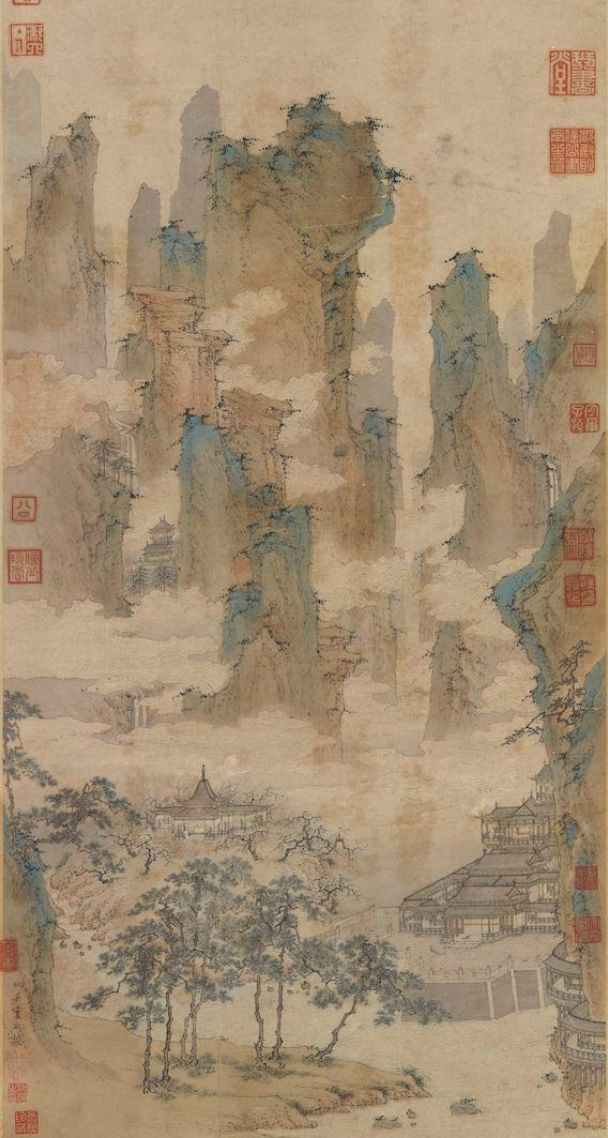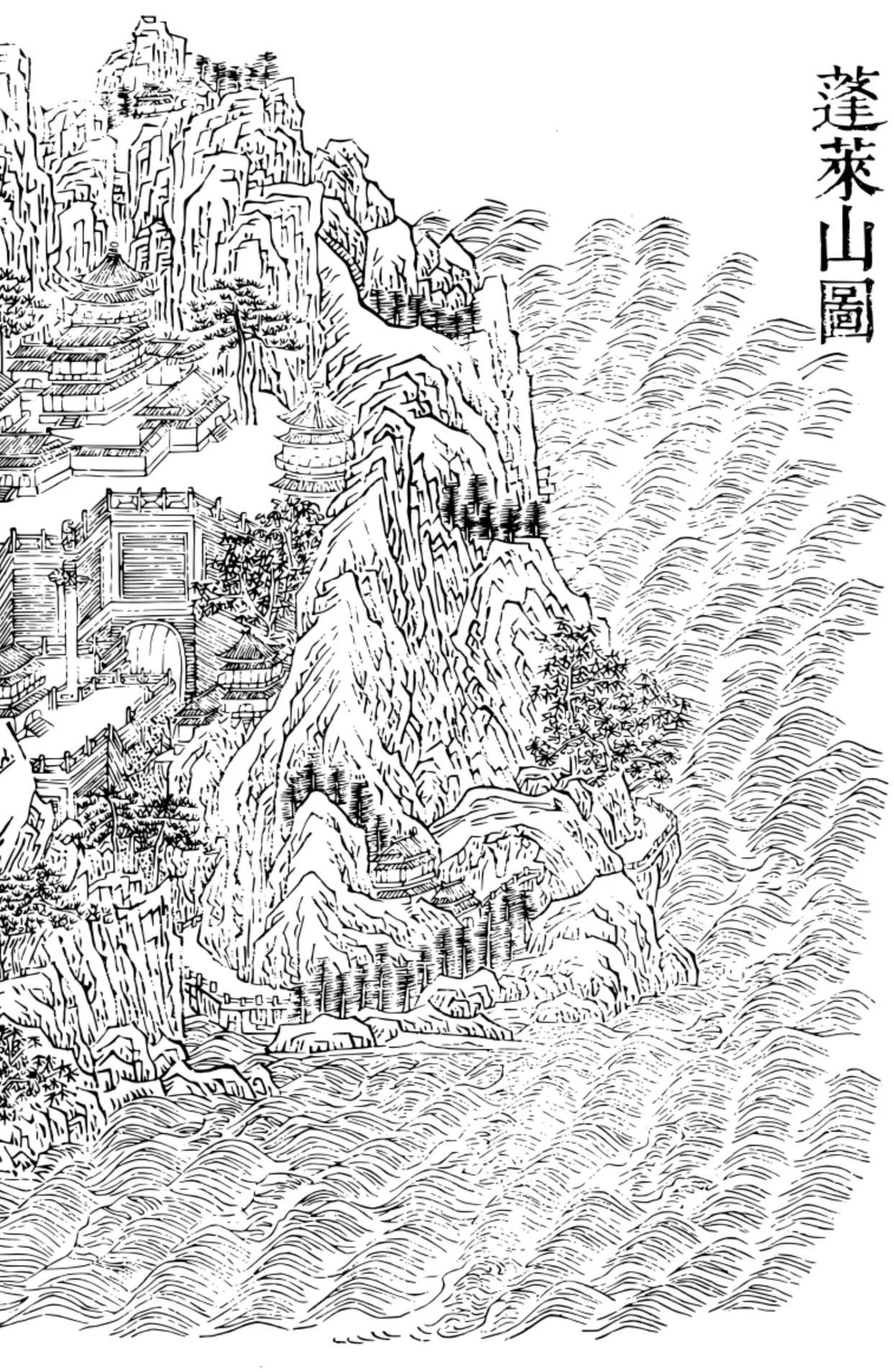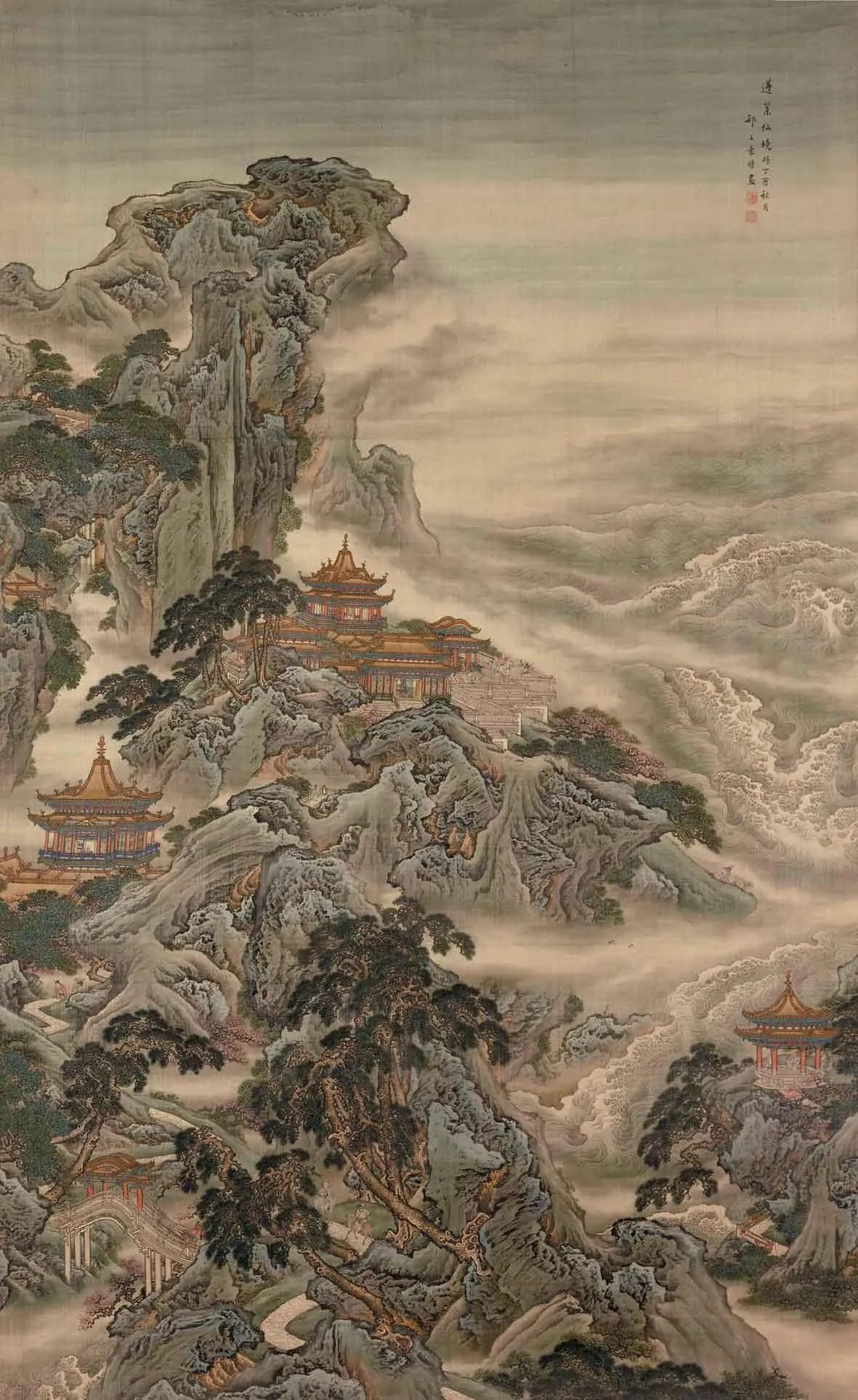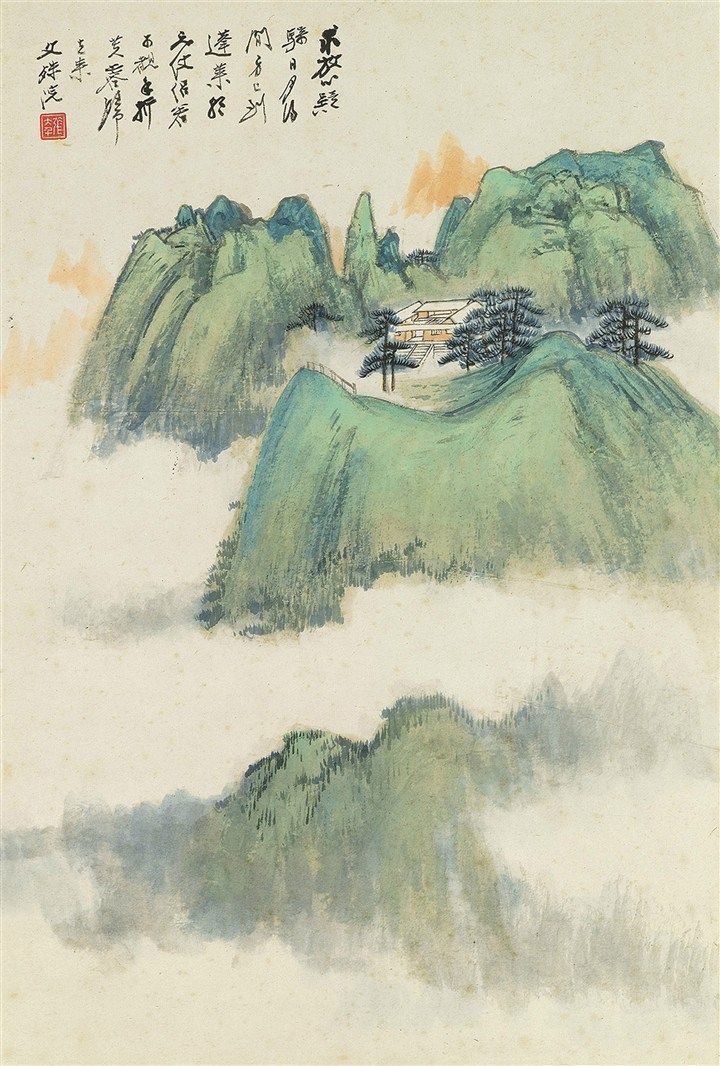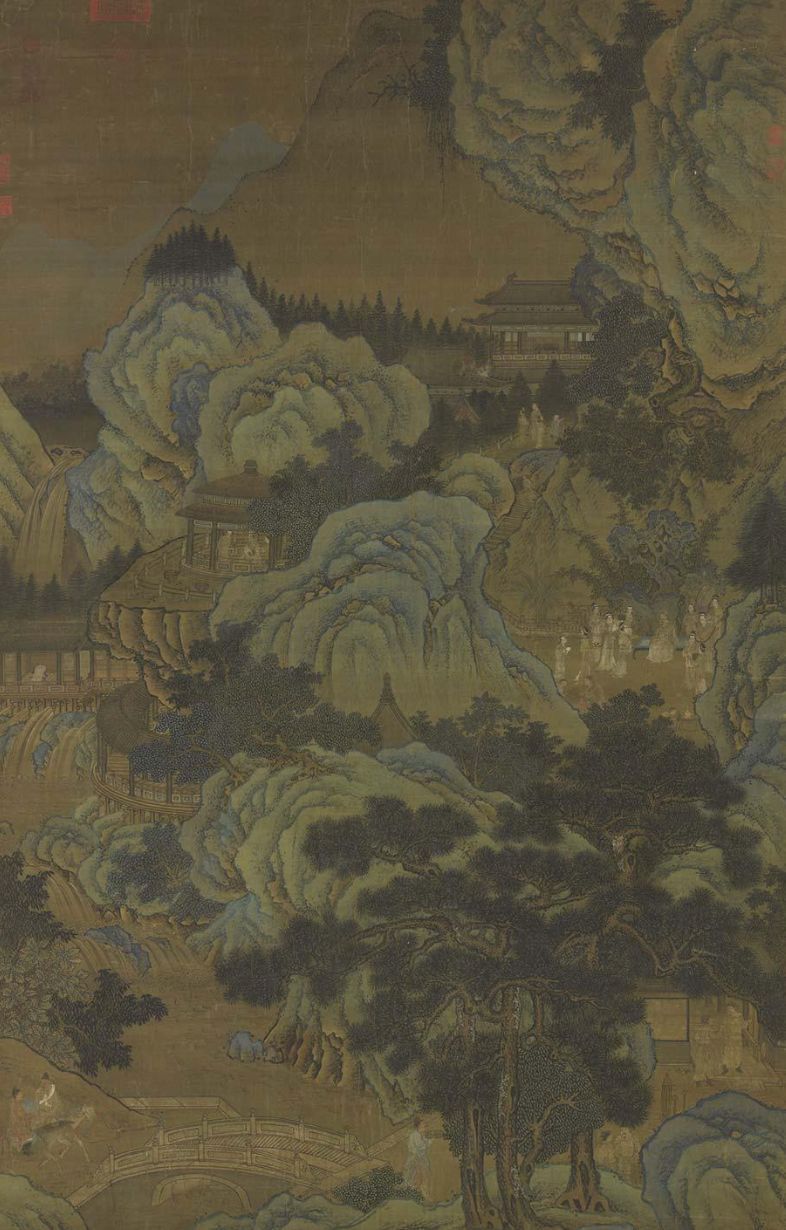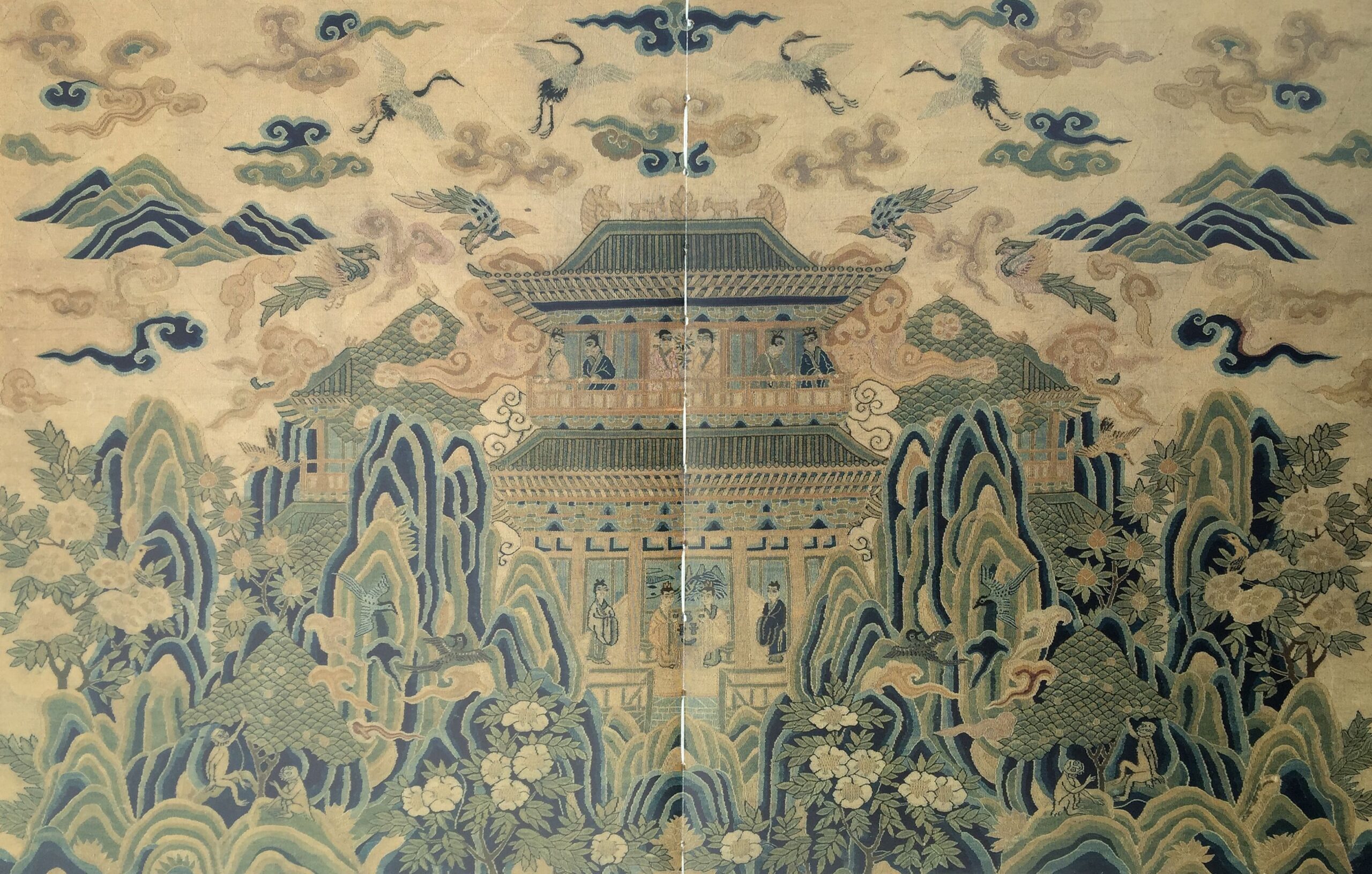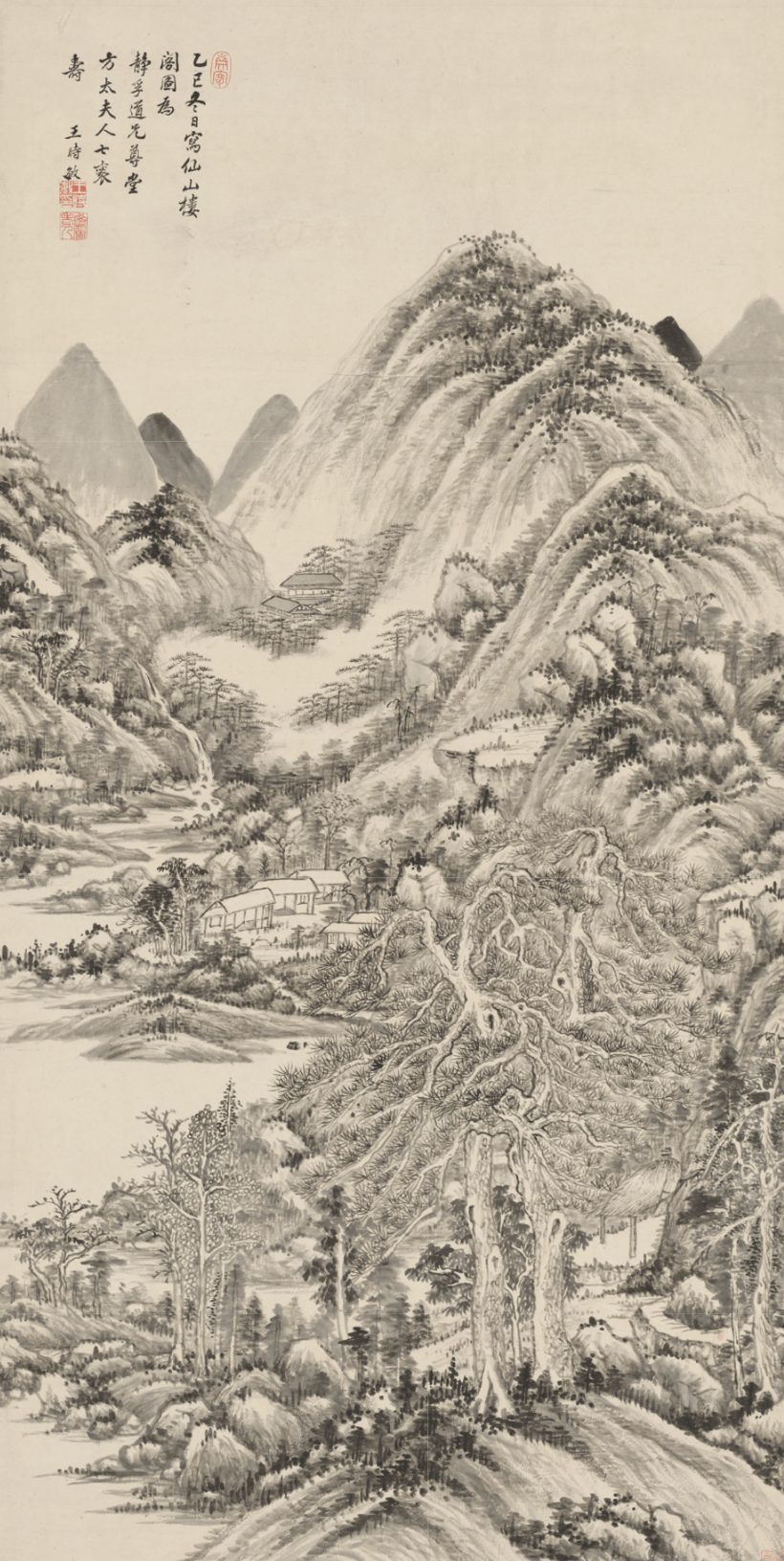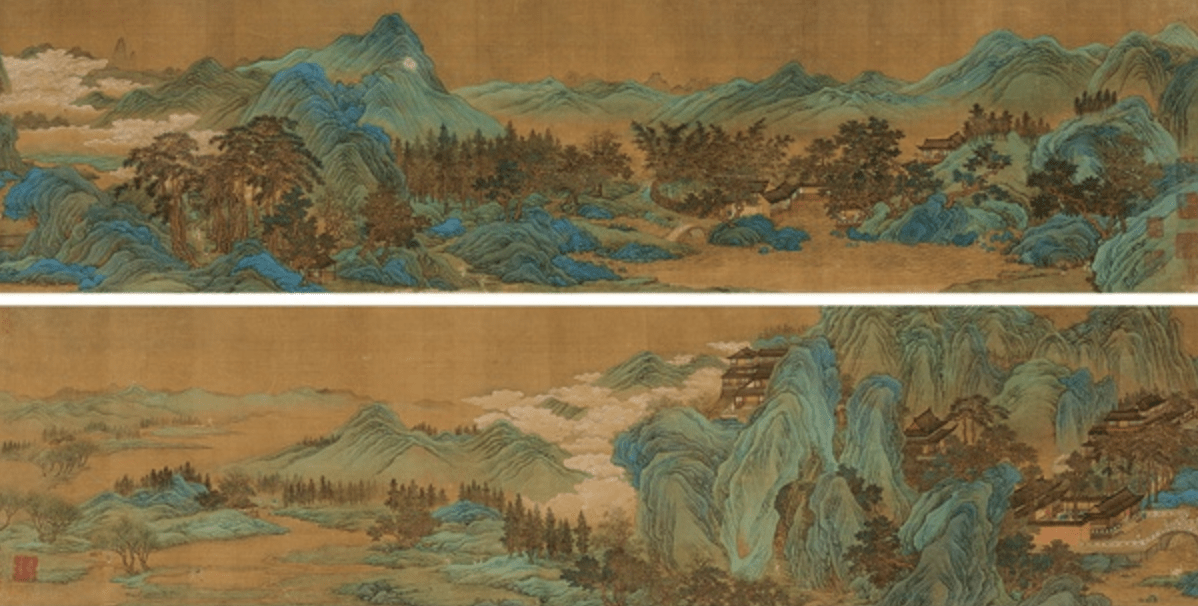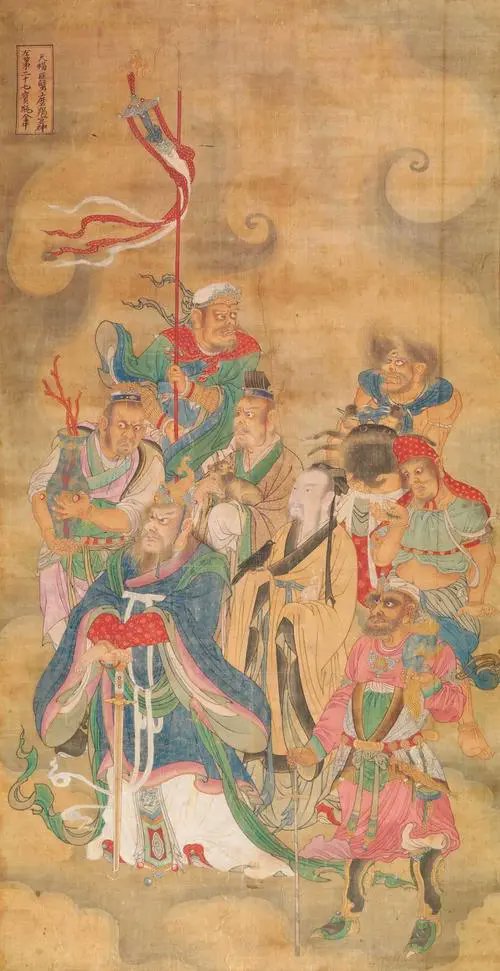《仙山樓閣圖》 仇英
This painting continues the tradition of previous immortal mountain artworks. The towering emerald-green mountains reaching into the clouds, the pavilions hidden among the irregular pine forests, and the bridge symbolizing the passage to the immortal realm, serving as a connecting and linking symbol – these typical elements of the immortal mountain paintings are all referenced by the artist.

